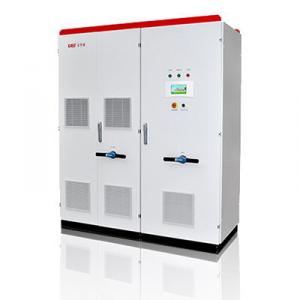Solar power has been a game-changer in the world of renewable energy. It’s a clean, efficient, and sustainable way to power our homes. But with so many solar panel options available, how do you choose the right one for your home? Let’s dive into the world of solar panels and explore the different types, their benefits, and how to make the best choice for your home energy efficiency.
The Magic of Solar Energy
Solar energy is harnessed from the sun’s rays using photovoltaic (PV) cells. These cells convert sunlight directly into electricity, which can then be used to power your home. It’s a simple yet powerful process that has the potential to significantly reduce your energy bills and your carbon footprint.
Types of Solar Panels
When it comes to solar panels, there are a few different types to consider. Each has its own unique characteristics and benefits. Let’s take a look at the main ones:
Monocrystalline Solar Panels
These are the most efficient type of solar panel, with a conversion efficiency of up to 20%. They are made from a single crystal of silicon, which allows for better electron movement and higher power output. However, they are also the most expensive option.
Polycrystalline Solar Panels
A step down in efficiency, but not in quality, polycrystalline solar panels are made from multiple silicon crystals. They have a conversion efficiency of around 15-16% and are generally more affordable than monocrystalline panels.
Thin-Film Solar Panels
These panels use a thin layer of photovoltaic material, such as amorphous silicon, to convert sunlight into electricity. They are the most flexible and lightweight option, but they also have the lowest efficiency, around 7-10%.
Factors to Consider
When choosing solar panels for your home, there are several factors to consider:
1. Roof Space and Orientation
The amount of roof space you have and its orientation to the sun will affect how many panels you can install and how effective they will be. South-facing roofs are ideal for maximum sunlight exposure.
2. Energy Consumption
Understanding your home’s energy consumption patterns will help you determine the size of the solar system you need. If you have high electricity usage, you may need more panels to meet your needs.
3. Budget
Solar panels can be a significant investment, so it’s important to consider your budget. There are financing options available, such as solar loans or leasing, to help make solar more accessible.
4. Local Incentives and Rebates
Many regions offer incentives and rebates for installing solar panels, which can help offset the initial cost. Be sure to research what’s available in your area.
Going Solar: The Installation Process
Once you’ve chosen the right solar panels for your home, the next step is the installation process. Here’s a brief overview of what to expect:
1. Site Assessment: A solar professional will assess your home to determine the best location and angle for your panels.
2. Permit Acquisition: Depending on your local regulations, you may need to acquire permits for the installation.
3. System Design: Your solar provider will design a system tailored to your home’s needs and energy consumption.
4. Installation: The solar panels will be installed on your roof, along with the necessary inverters and wiring.
5. Inspection and Interconnection: After installation, your system will be inspected and connected to the grid.
6. Maintenance: Solar panels require minimal maintenance, but it’s important to keep them clean and free of debris for optimal performance.
The Financial Benefits of Solar Panels
Installing solar panels can provide significant financial benefits in the long run. Here’s how:
– Reduced Electricity Bills: By generating your own electricity, you can reduce or even eliminate your monthly electricity bills.
– Solar Tax Credits: The federal government offers tax credits for solar installations, which can help offset the cost of your system.
– Increased Home Value: Homes with solar panels tend to have a higher resale value, making solar panels a smart investment.
– Sell Excess Energy: In some areas, you can sell any excess electricity back to the grid, earning you additional income.
The Environmental Impact of Solar Panels
Beyond the financial benefits, solar panels have a positive environmental impact:
– Reduction in Carbon Emissions: Solar power generates electricity without producing greenhouse gases, helping to combat climate change.
– Clean Energy Source: Solar power is a clean and renewable energy source, ensuring a sustainable energy future.
– Low Water Usage: Unlike some other energy sources, solar power requires minimal water usage, reducing its environmental footprint.
Embracing the Solar Lifestyle
Adopting solar power is more than just a financial decision; it’s a lifestyle choice. By choosing solar panels, you’re making a commitment to a cleaner, more sustainable future. Here are some tips for embracing the solar lifestyle:
– Educate Yourself: Learn about solar power and stay informed about the latest advancements in technology.
– Spread the Word: Share your solar journey with friends and family to inspire others to consider solar power.
– Support Solar Initiatives: Get involved in local and national initiatives that promote the use of solar energy.
Conclusion
Exploring solar panel options for your home can be an exciting and rewarding process. By understanding the different types of panels, considering the factors that affect their performance, and embracing the solar lifestyle, you can make an informed decision that benefits both your wallet and the environment. So, what are you waiting for? Start your solar journey today and join the growing community of homeowners harnessing the power of the sun to power their homes.

